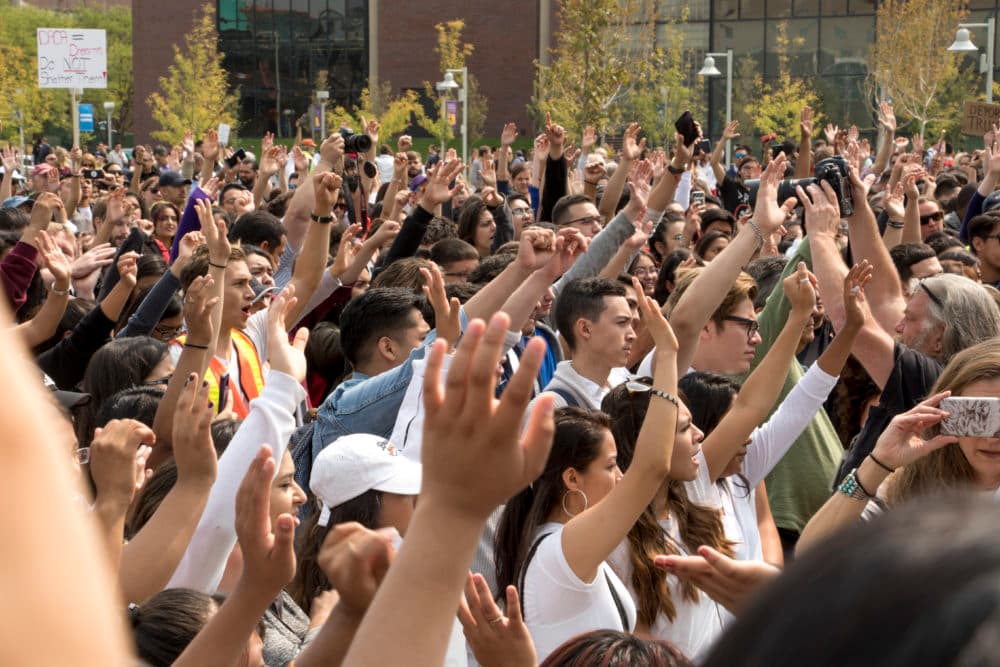
The number of people deported from Colorado and Wyoming increased by close to 150 percent in the fiscal year 2017, according to new statistics from the Department of Homeland Security.
It was the highest rate of increase among the nation's 25 immigration enforcement areas, and it demonstrates that Immigration and Customs Enforcement is shifting its attention to the interior states.
In some cases, ICE has arrested people at courthouses and in other "low-hanging" situations, according to Jennifer Kain-Rios, an independent immigration attorney.
"We’re seeing basically indiscriminate enforcement," she told Denverite earlier this year.
There are some important caveats.
ICE is arresting more people around the country -- an increase of about 40 percent compared to last year. The agency "no longer exempts any class of removable aliens," it said in a report.
However, the nationwide number of deportations is actually lower this year than last year. Areas closer to the border -- El Paso, San Diego, San Antonio, Houston, Phoenix -- all saw fewer removals this year.
ICE officials says there are fewer arrests and removals near the borders because fewer people are entering the country illegally.
The agency claims that "the border's under better control than it has been in 45 years," as the San Antonio Express-News reported. The immigration courts are also running at capacity, delaying cases.
Is ICE targeting interior states?
Apparently.
President Donald Trump's administration has "strongly emphasized" enforcement in the interior, as a spokesman told CPR.
In all, about 2,500 people were deported in Colorado and Wyoming, which are combined as the "Denver" region in ICE's reports. And, nationally speaking, ICE is arresting far more people without criminal records, according to the Voice of San Diego.
"We haven't been seeing the traffic stops like we have in border states, but we’re seeing home raids. They’re going back into their database," Victor Galvan, civic engagement manager for the Colorado Immigrant Rights Coalition, said in an interview earlier this year.
"They’re targeting them where they live."
What's next?
The numbers were actually higher here under President Barack Obama in 2013, when nearly 3,100 people were reported removed. But with worries of a crackdown growing, attorneys and families are preparing for their worst fears.
"The right thing to do is not just hear this message and go underground, which I think many people are doing, but to get educated about your own case," Kain-Rios said.
"Get organized with your own documentation, as well as preparing your family for the possibility that the person in your family who is undocumented, who doesn’t have lawful status in the United States, might have to defend themselves from deportation and have to do it very quickly."











